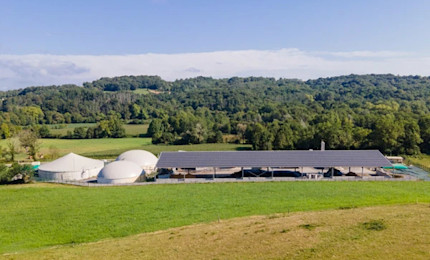Urgence gaz 0 800 028 800

Results that illustrate a robust business model
With revenue of €488 million and a net result amounting to €65 million up substantially compared to 2020, the year 2021 confirms the solidity of the Teréga model and the relevancy of its strategy.
The transport activity represents revenue of €340 million, up nearly 9%
following a mixed year where the transport activity was marked by the drop
in subscriptions to Pirineos in a health crisis context.The storage activity however has revenue standing at €148 million, which is
stable compared to 2020.
Teréga is continuing its investments to ensure its mission as a gas infrastructure operator and is supporting the development of the energies of the future: it's investment level has grown 10% compared to 2020, reaching €138 million in 2021.
"The year 2021 confirms the robustness of our model and encourages us to continue our investment strategy to transform Teréga and guarantee a future for our activity".
Dominique Mockly, Chairman and CEO of Teréga.
Teréga: A driving force in the energy future
Following the invasion of Ukraine by Russia, European countries have to reach a
higher level of energy independence. This means accelerating and intensifying
the adoption of decarbonised energy sources, as underlined by the
REPowerEU communication for the European Commission, a plan to
progressively get out of Europe's dependency with respect to Russian fossil fuels
well before 2030, and increase the resilience of the European Union's energy
system.
Faced with the climate emergency and straight in line with the REPowerEU
communication, Teréga is committed to accelerating the development of renewable
gases. For example, Teréga is one of the main stakeholders in the European
work on the "European Hydrogen Backbone". This ambitious initiative brings
together 28 countries who want to join forces to create a hydrogen transport grid
nearly 53,000 km long in 2040 across the European Union. At this horizon, the
European hydrogen backbone should be formed of nearly 60% gas pipelines
converted to hydrogen, and about 40% new dedicated pipelines. This grid should
play an essential role in the decarbonisation of the European economy and in its
energy sovereignty.








